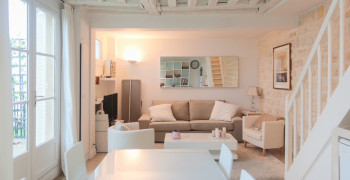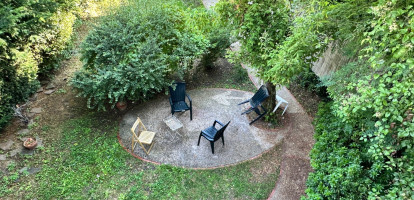The winter break applies from November 1, 2024, to March 31, 2025.
Until 2014, before the global warming was news, the duration of the winter break was shorter than currently, ending on March 15!
Concretely, during this period, the tenant's eviction from his accommodation cannot take place and is postponed.
How did the Winter Break come into existence?
Following the call of Abbé Pierre on Radio Luxembourg in 1956, when France was experiencing an unprecedented cold snap, the winter break protected tenants in precarious situations during the five coldest months of the year.
Since then, a lessor cannot evict their tenant during this period. It is so even if a court has already confirmed an eviction procedure. The same truce operates with energy suppliers, guaranteeing tenants water, electricity, or gas, even in the event of unpaid bills. However, the consumption of these energies during the break remains due, and the tenant will eventually have to pay his energy bills.
This truce applies to residential accommodation, commercial premises, and staff accommodation.
Drifts and adjustments of the winter break
Unfortunately, this blessed period for the poor has become a godsend for tenants, who, even in funds, wait for this period to make themselves a nest egg by not spending on rent. Then, after 5 or 6 months, they look for another accommodation and wait for the following year to start again. There are many such stories. Landlords rarely incur lawyer's costs knowing that the procedure can last three years, and informed tenants know this!
Finally, a recent law voted in the National Assembly would tend to revise the current procedures. Let's wait and see!
Among the adjustments of our 21st century, there has been a list of people unprotected by the winter truce. Here are the people who cannot appeal to the winter break for protection:
- people benefiting from rehousing corresponding to their needs;
- squatters occupying a home, whether a primary or secondary residence;
- squatters occupying a garage or land;
- A spouse evicted from the marital home by court order after non-conciliation of divorce proceedings;
- A spouse, Pacs partner, or violent partner in the couple or on a child, evicted from the family home by court order.
What is the situation of the defaulting tenant?
The Alur law of March 24, 2014, protects the tenant: From November 1 and March 31, tenants cannot be evicted, even if they don't pay the rent. However, they owe late rent when the truce ends.
The tenant has the following choices:
- he can regularize his situation before the end of the truce
- he benefits from a deferral of his unpaid monthly payments until the end of this period.
At the end of the truce, if the rental debt payment is not settled, the eviction procedure may resume and be executed by a bailiff.
As soon as the tenant stops paying his rent, the landlord should start legal procedures for eviction before or during the winter break. Although evictions do not occur during the winter break, nothing prevents a landlord from initiating legal proceedings.
Here is a summary of the procedure to follow:
- First, reach the tenant by phone or email.
- Then, send him a formal notice by registered letter with acknowledgment of receipt.
- If the tenant still refuses to pay his rent, send him an order to pay by bailiff if the lease includes a termination clause providing for the termination of the rental contract in the event of the tenant's failure to fulfill his obligations. The tenant has two months to pay his bill.
- After this time :
- If the judge orders the termination of the lease and the eviction, it can only happen after the winter truce, i.e., March 31.
- if the tenant has not paid his debt and your lease does not include a resolutory clause, take the matter to the litigation and protection judge in the court of law
- The tenant has two months, or even more, according to the judge, to comply. He can also obtain an additional grace period from another judge.
Today, "The duration of the delays cannot be less than three months nor more than three years", a range that the recent bill (anti-squat and defaulting tenants) aiming to protect housing against illegal occupation aims to accelerate to 2 months to one year.
Prevention rather than cure: avoiding unpaid rent?
Several elements allow you to choose your tenant well and thus minimize the risk of unpaid rent:
- Make sure of the tenant's solvency, and their income must be between 2.7 and 3 times higher than the amount of the rent; the tenant must demonstrate a stable professional situation.
- Compile and sift through all of the tenant's supporting documents to determine the strength of the tenant's rental record;
- Opt for a surety able to pay the rent to compensate for the tenant's default. Thus, secure your rental investment, either by a personal guarantee or a guarantee such as Garantme.
- Take out unpaid rent insurance to protect yourself and cover the charges related to a potential legal action;
- Draw up a rental lease with all the mandatory information without forgetting to include a termination clause to anticipate the cancellation of the contract in the event of problems;
- Maintain a good relationship with your tenant. The human dimension is significant to avoid any potential dispute;
- For its part, the owner-lessor must ensure that two points are respected:
- The amount of rent applied must not exceed a lawful ceiling;
- The rental lease must contain a termination clause and a solidarity clause;
Check out this landlord's guide to learn more about what to do if tenants don't pay their rent.
Editor: Claire de Circourt
Sources: Le Figaro Immobilier, Les Echos



 Français
Français

















